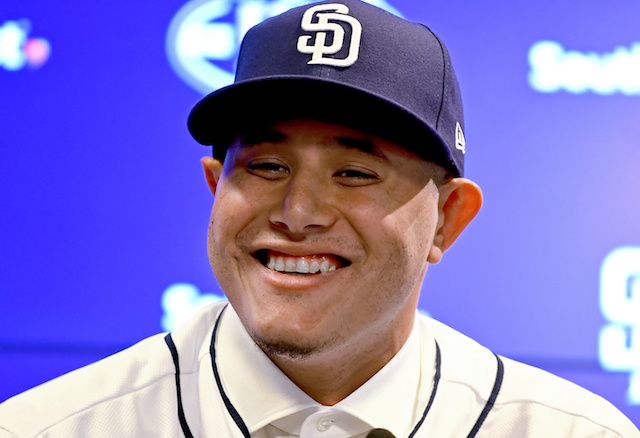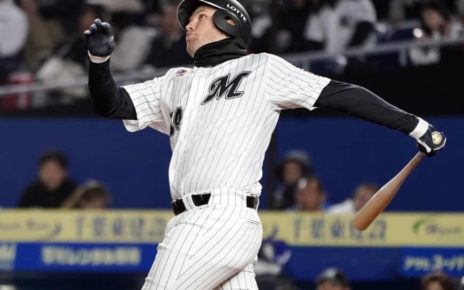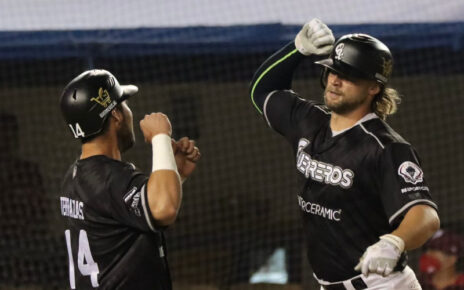We are nearing the finish line of another arduous Major League Baseball offseason and it is more apparent than ever that ownership across the board is terrible. The way the Chicago Cubs are handling the Addison Russell situation. How every team is operating through collusive means to drive down free agent contracts. Teams selling off their best talent to reboot the franchise mere years after doing the same thing. The list goes on and on, and in every instance, the common denominator is that ownership cares not about what is right or wrong. They care only about their bank accounts, and they most certainly don’t care one iota about you.
Yet, the most common argument I seem to get into these days is with fans who feel the need to defend ownership. These arguments cover the spectrum of issues related to ownership, but no matter the issue there are always fans at the ready to defend the owners. I’ve never quite understood this compulsion, even if I myself have been guilty of it in a past life or two. My lack of understanding aside, the arguments persist, and the Ownership Defender Brigade only seems to grow with each passing day.
For the sake of brevity, this article will focus on the most obvious of transgressions by ownership. Owners have money, lots and lots of money, but they do not want to spend it on their teams. They do spend, I’m not arguing that they don’t spend a dime of their money on the teams they own. The issue is that they don’t spend enough, often lie about what they can spend, and are willing to put a lesser product on the field as long as they make a profit.
I’m not so silly as to think baseball is anything other than a business. I may think of it as a game, a pastime, and any other number of things. Those are fanciful labels that reside in my heart, they are not the reality. The reality is that I am paid to write about baseball, players are paid to play the game, and owners only own because it is an opportunity for them to make money. This is the truth of the matter, but it does not excuse owners from refusing to spend money on their product.
The best example of owners refusing to spend money can be found in the current free agency of Bryce Harper and former free agency of Manny Machado. They are generational talents who hit the free agent market in their respective primes. That rarely happens and in the 2019 offseason, it happened with two players at the same time. Teams should have been chomping at the bit to sign either of them the moment free agency began. Instead, reports trickled out of one team after another stating they aren’t interested or are backing down from previous statements of being all in on either star until the San Diego Padres finally put all their money on Machado.
Of course, there could be other reasons for these events. Teams could have tossed dollar amounts out there and the free agents rejected deals they don’t believe accurately reflect their value. I’m sure that is the case with some teams, and in those cases, I am willing to give ownership a pass. If they made what they felt was an all-world offer and it simply wasn’t good enough, that happens. A pair of generational free agents should be driving the market. If that is what happened/is happening then that is just how life goes sometimes.
We know that in most cases that isn’t what is happening. We know for instance that the Chicago Cubs owner Tim Ricketts spent years talking about tearing the team down, building a winner, and then funneling profits back into the team to keep them a winner. Surely a team that just made $457 million in revenue in 2017, is poised to sign a massive deal for their own television network, added new seating to Wrigley Field, and is now generating profits from the reconstructed outdoor areas surrounding Wrigley is ready to spend? Not so fast my friend, Ricketts and the Cubs have used this offseason to push the idea that they are completely broke.
Let’s be clear about what they mean when they say they are broke, or what the Cleveland ballclub means when they say they have to trim payroll. This is ownership choosing to maximize profits even more than they were previously. This is why ownership groups throughout the league use and abuse taxpayers to fund their private stadiums. They do not care about you, your taxes, your enjoyment of their product, or delivering on the promises they have made to you. All the owners care about is doing the bare minimum so that they can say at the end of the year that they made a profit of $88 million versus $86 million.
This brings us back to you, the fan who defends ownership every chance they get. You hem and haw over players contracts. You get upset when players ask for too much money. At the same time, you propose fantasy trades to free up financial space to sign the players you think the team really needs. This is a process you undertake because you feel like you can solve the team’s financial problems. The time has come to realize that the team has no financial problems. They can afford more than they ever let you know about, and when you harp on about their financial limitations all you are doing is helping owners to hold down players salaries.
I don’t entirely blame those defending the owners. Rather I blame most reporters and the way they choose to report about the team’s financial statuses. What I’m writing is an opinion article, I am not disseminating information given to me. That’s what reporters do, and for the most part, they continue to fail those who read or listen to them. I believe that people working for ownership are telling reporters that they have financial limitations. That is the message that ownership wants to be given to the masses. It is the job of reporters to take the information they are given, disseminate it, and frame it so that the truth is revealed. Instead, reporters this offseason have fallen into the habit of regurgitating what ownership is saying as if it is a fact. This lack of doing their job inflames the idea that owners are the poor victims being harmed by the money-grubbing antics of the players. That is an idea so laughable that I had trouble typing it out, but it has become the reality of the way most reporters choose to report on owners.
I’m aware that my opinion on this matter is influenced by my political leanings. As I grow older I have turned into a pro-union, pro-labor, Socialist. I’m the last person one would expect to agree with any ownership, and that bears out in what I have written here today. All I can ask of other fans of baseball is to stop defending ownership at every turn. They are not your friends, they do not have your best interests at heart, and they could spend more than you could imagine every offseason and still turn a profit. The owners are businessmen, but they are also the enemy. They are the main line between you and seeing your team become a winner. Remember that the next time you try to trade any player to free up money for the cash-strapped billionaire ownership class.
Lead photo courtesy of Jayne Kamin-Oncea – USA Today




